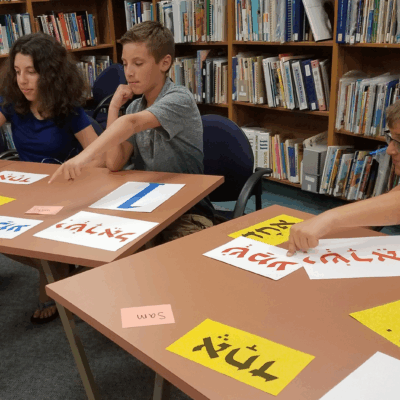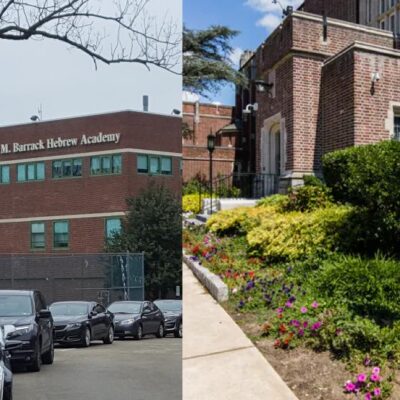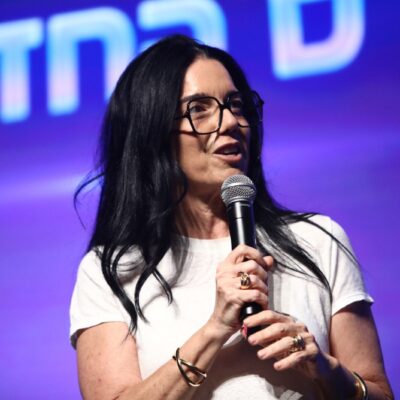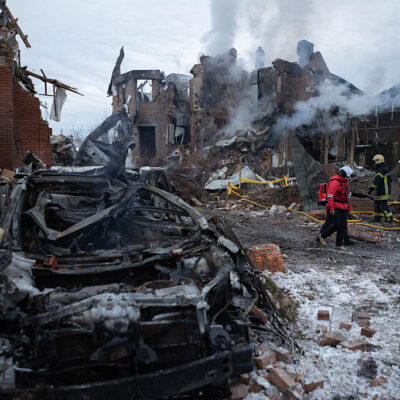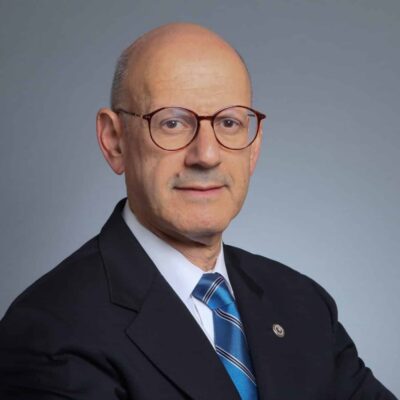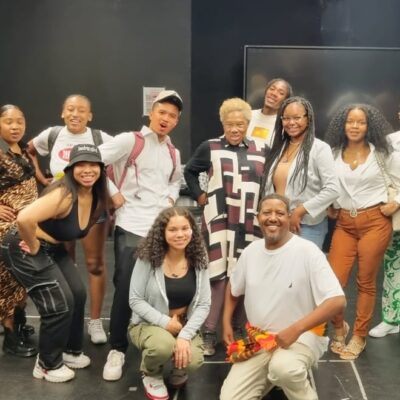Opinion
In defense of the congregational rabbinate
Recent articles about the state of synagogues in the United States describe an impending crisis: Fewer American Jews are studying for the rabbinate; and among those who do, fewer want to serve congregations. Rabbinical seminaries are closing or selling off property to remain afloat. It is not that younger Jews are not connecting to Judaism, but that the center for Jewish life is drifting away from the synagogue toward more independent gatherings of like-minded individuals.
After 50 years as a rabbi — 39 as a congregational rabbi — I want to celebrate the gifts of the congregational rabbinate and call attention to what would be lost in its absence.
Congregational rabbis walk through the life cycle with families, know generational joys and sorrows and help people, with whom they celebrate and mourn, sanctify the everyday. Congregational rabbis nourish souls and accompany us through the seasons of life. Congregations, unlike associations of like-minded individuals, are heterogeneous communities that connect to the larger community in which they reside. Rabbis who lead them do more than create powerful moments — they create enduring relationships.
As a congregational rabbi, I learned hope as I sat with a terminally ill mother and her three young children as she planted a rose garden, knowing that she would not see the flowers bloom. I learned joy when I officiated at the wedding of a paraplegic, confined to a wheelchair, whose bride sat on his lap as they whirled in a dance. I learned to see the world differently from a woman who lost her sight just months before her first child was born.
As a congregational rabbi, I carried the terrible pain of losses that happened out of season: the ache of burying a congregant who had become a friend; the resilience of those who grieved and still had the ability to get up, to go on and even to sing; the sorrow of the little girl whose mother had just died who asked: “Who will brush my hair in the morning?”; and the prayer of the young boy whose mother was dying who said at a Yom Kippur family service, “I would like to call God, ‘Healer.’”
I love to study and teach theology, but only as a congregational rabbi did I ever help someone experience the Divine. Once when teaching a class on God, I invited the participants to find their own name for God. A woman told me that she would like to call God “an Old Warm Bathrobe.” One year later, she explained: “My mother died this past year, and I took her old warm bathrobe and wrapped it around me, and I felt the presence of God.”
Rabbis who serve congregations create deep family connections that traverse the years. I held a silver kiddush cup at a wedding that was the only item the father of the bride had been able to retrieve from his home in Poland after he was liberated from Auschwitz at the age of five. Only he and his mother survived — and that kiddush cup. I stood under the chuppah with his eldest daughter, years later, filled that empty cup with sweet wine and said l’chaim. Few other careers can create such generational memory.
In every congregational rabbi’s life, there are moments like this: I was preparing for the Seder. My son was soon to return home from preschool. My toddler daughter was watching an episode of “Mr. Rogers.” The chicken soup was about to boil.
Then, the phone rang. The woman on the line sounded desperate. “I am thinking of committing suicide,” she said. What followed was something of a Passover miracle. The long phone cord (there were no cell phones) enabled me to keep an eye on my daughter and the pot of soup. The school bus was mercifully late. And somehow, from somewhere, I found the right words to assure the woman that her life was worth living.
Moments like these enable us to fully understand something that is not often part of our Jewish religious vocabulary — grace. Christianity discovered grace in Judaism, and then Judaism seemed to forget about it. In Hebrew, the word is chesed, unconditional love, lovingkindness. Nothing prepares you for life’s difficult moments. What gets you through them is grace.
Congregational rabbis learn about grace from people to whom life is not gracious, but who make their own grace, who have every right to be bitter and angry but are kind. This is what matters — a good word, a warm embrace, presence. Judaism faces life and mortality honestly and teaches us, despite anything that would compel us to do otherwise, to fill our cups with sweet wine and to say with courage and grace: l’chaim.
I have taught Judaism in college classrooms, but only through a Shabbat d’var Torah could personal experience elucidate a text. Studying the story of Lot’s wife, a congregant commented, “I was once a pillar of salt. Upon entering the extermination camp, I was separated from my parents. Like Lot’s wife, I turned back to see them, and I saw the smoke rising from the crematorium. I dissolved in tears. I became a pillar of salt.”
The congregational rabbinate is about creating connections. From sharing lunch and friendship with a minister and an imam, to speaking at a rally on immigration; from a baby naming to a funeral; from telling stories to children to listening to stories from the elderly. Rabbis nurture a gathering of spirits, connecting people of different ages, divergent political ideologies, spiritual inclinations, theologies, traditional observances, and family configurations. They speak out for justice and compassion by connecting text to place. They open minds by allowing tradition to inform the individual and enabling the personal to reimagine tradition.
The word that best represents for me what it means to be a rabbi is one of the most common words in the Bible. It is three letters in English and just one in Hebrew: the Hebrew conjunction “veh,” the English “and.” A rabbinic tradition teaches that the letter vav was the mark God placed on Cain’s forehead after he killed Abel, to remind us that we are connected, our brothers’ and sisters’ keepers. Vav in Hebrew also represents the number six. Human beings were created on the sixth day of creation, the day of the “and.”
It is difficult to be a congregational rabbi, to be the bridge, the “and,” that connects a diverse population. There are constant demands and often conflicting expectations. The role requires challenging people and serving them at the same time. Congregational rabbis must educate, inspire and provide moral leadership, all while ensuring that the congregation is well-run and financially sustainable. The communities they create, the relationships they foster, the conversations they enable and the grace they experience make this rabbinic calling a sacred honor and privilege.
Congregational life teaches us that binaries need not be opposites but can be matched: love and power, justice and compassion, faith and doubt, seriousness and play, religion and spirit. Love without power is sentimentality. Justice without compassion is cruel. Faith without doubt is dishonest, and doubt without faith is cynicism. Seriousness without play is boring and unimaginative. Religion without spirit is dead. God is the “and,” that brings those opposites into one harmonious whole — and congregational rabbis are God’s partners.
Rabbi Sandy Eisenberg Sasso is senior rabbi emerita of Congregation Beth-El Zedeck in Indianapolis, Ind. She is the founder of Religion, Spirituality, and the Arts at Herron School of Art and Design at Indiana University and is an award-winning author of over 25 children’s books. She is also a contributor to the Clergy Leadership Incubator (CLI) Synagogue Innovation Blog.

 Add EJP on Google
Add EJP on Google